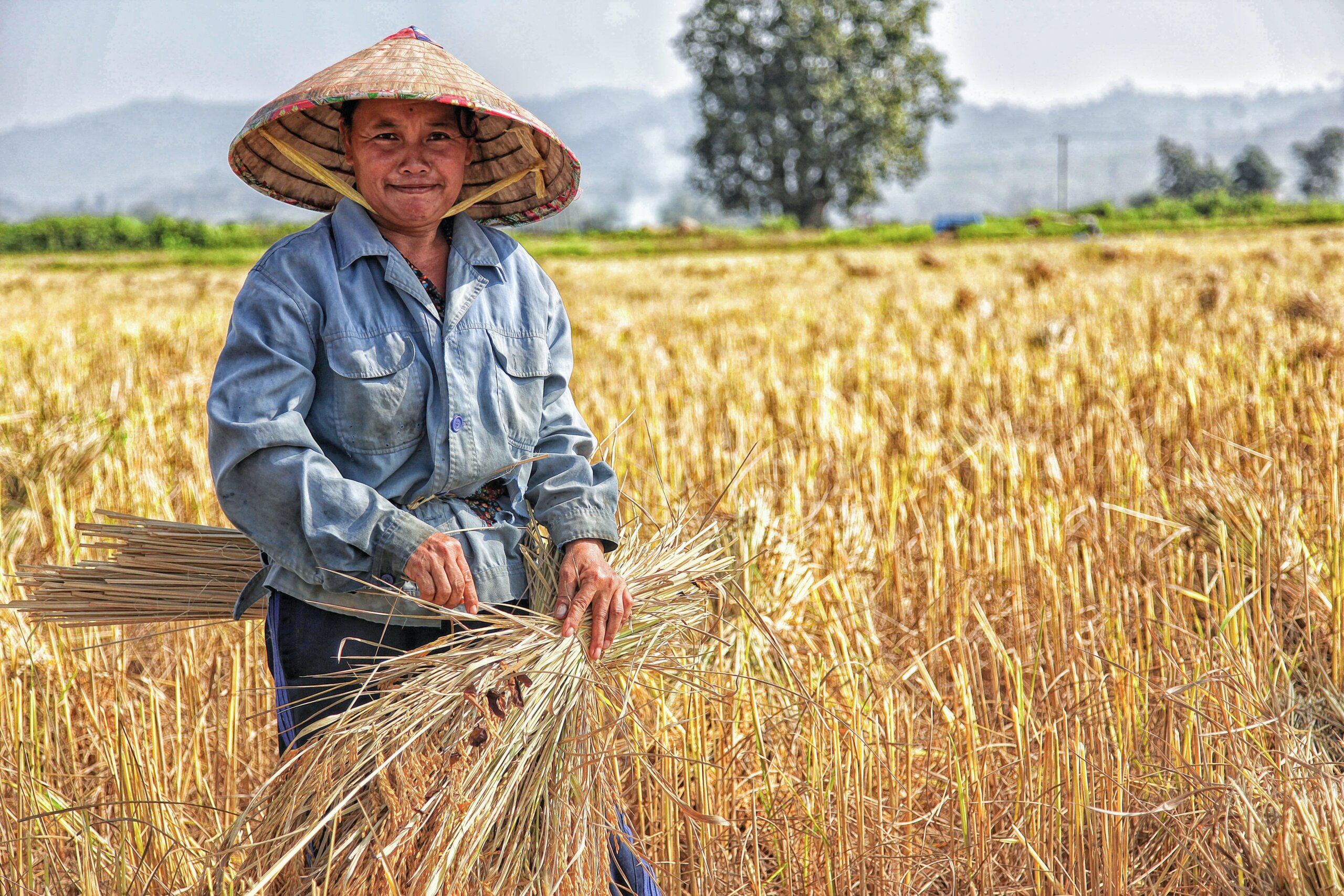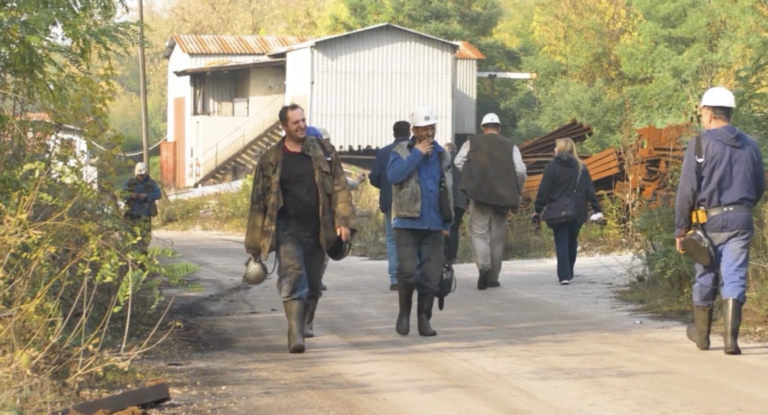We are currently facing an unprecedented global food crisis. In 2023, more than 345 million people are facing high levels of food insecurity, more than double since the pre-COVID-19 era. Among this number, 900.000 people are on the brink of famine or catastrophic hunger, which is ten times higher in number compared to 2018. The supply chain disruption due to political conflict such as war in the Ukraine continues to exacerbate this condition. Other than pandemic and conflict, the global food crisis is largely caused by the fragility in our food system to produce food due to climate change.
Ironically, the food system is both the primary victim and the main cause of the climate crisis. As global temperature rises, food production becomes uncertain due to weather patterns, extreme weather, and severe environmental damage which leads to falling crop yields. On the other hand, the food system is also the leading cause of climate change. The IPCC report estimated that it contributes to about 21 – 37% of total greenhouse gas emission (GHG) and the number one source of methane and biodiversity loss. In addition, the growing population requires more food production although the planet is already approaching its ecological threshold. With our current rate of food production, we are eating at the expense of our planet earth. This evidence warns that we are moving farther away from meeting the Sustainable Development Goals (SDG) 2 to achieve zero hunger in 2030. Considering the pivotal role that food plays in fostering a healthy and productive population, our deficiency in this area also hinders us from achieving other SDGs.
As compared to other forms of agriculture, smallholder farming stands out as the most predominant form, providing essential support to numerous vulnerable populations while coexisting with highly diverse and threatened landscapes. According to IFAD, an estimated 500 million small farms produce about 80 percent of the developing world’s food and another 2 billion people depend on small-scale farms for their livelihood. They produce 50% of food (calories) on just 30% of the agricultural land. Furthermore, 600 million smallholder farmers worldwide only work on less than two hectares of land, but produce 28-31% of total crop production. Based on this figure, smaller farms tend to be more productive when compared to larger farms, however they do not have equal access to inputs and financial resources.
This noteworthy contribution from smallholder farmers implies that we are relying on them to feed our growing population. Yet, it is disheartening to observe that despite their substantial role in food production, smallholder farmers, who account for about one-third of the world’s food, are among those most affected by the detrimental effect of food insecurity. They are extremely vulnerable and disproportionately affected by extreme weather, rising temperatures, severe drought, floods, and storms–putting more pressure on the ecosystem, resulting in failed harvests and reduced yield. The impact of climate change is more pronounced on smallholder farms due to their limited access to inputs, technologies, and financing, as opposed to larger-scale farms. The condition is further exacerbated by escalating production costs, political conflicts in the supply chain, and limited access to financial resources. These collective challenges expose them to a higher risk of food insecurity.
Furthermore, our current food system is closely associated with rural poverty, where two-thirds of people suffering from hunger live in rural areas. In the low-income countries, more than two-thirds of workers are employed as farmers. However, at the same time, 83% of farms worldwide are operated under 2 hectares of land, even more prevalent in the global south. According to the WorldBank, 500 million smallholder farming households are living on less than $2 a day. On top of that, the gender gap is also common among smallholder farming where women–who make up nearly half of all smallholder farmers–experience unequal resources to finance, inputs, services, and land rights. For instance, women farmers in Africa account for 70% of food production, yet they own less than 20% of land, hindering the effort to close the gender gap in agriculture. If women are given the equal access to productive resources as men, they would increase the yields to 20% – 30% and reduce hunger by up to 17%. With increased yield, access, and power, they are more than able to alleviate poverty. Unfortunately, our food system has experienced shortcomings in providing equal support for all contributing actors, including smallholder and women farmers.
It is worthwhile to acknowledge the complexity of our food system which poses significant challenges when it comes to finding effective solutions. Neglecting one component in the food system leads to disruptions in other parts, resulting in heightened vulnerability among the most marginalized population. Smallholder farmers continue to play a crucial role in the food system due to their substantial contribution in food production. However, given the intricacy of our food system, it is pivotal to represent all contributing actors including civil society, public and private sectors, and the financial and philanthropic communities to transform our food system, in favor of the smallholder farmers and the ecosystem. Leveraging the power of strategic partnerships would help smallholder farmers to access investments, knowledge sharing, and technology which in turn escalate their wellbeing without compromising the ecosystem.
“With a new coalition called Forum for Farmers and Food Security, we’re really proud of the way we can leverage financial partnerships to support producers; farmers; the folks who are doing the real work on the ground—in the ground! —every day” Danielle Nierenberg – President of Food Tank
The Forum for Farmers and Food Security (F3S) serves as a dedicated platform for fostering strategic partnership, aiming to empower farmers in maximizing their income and promoting the transition towards regenerative agriculture. By actively addressing barriers, F3S provides farmers with the tools and opportunities to alleviate poverty from the grassroot, ultimately working towards a sustainable food system. F3S highlights the importance of strategic partnership in fostering finance/investments, increasing market access, technology, purchase commitments, data, and measurement tools, expanding climate literacy in agricultural communities, closing the gender gap, establishing local knowledge share, and promoting youth involvement. Partnering with Pegasus (Capital Advisors), FoodTank, and Producers Trust, F3S set its agenda to remove the obstacles faced by farmers.
For example, finance is a critical barrier for farmers to access even the most basic inputs such as fertilizers, seeds, tools, and the knowledge to increase their yields. Collectively, smallholder farmers in Africa, Latin America, and Asia are suffering a $170 billion funding gap due to the lack of supportive financial institutions. Enabling financial inclusion from the private and local sector is essential to help smallholder farmers closing the funding gap. Another illustration can be observed in the challenges faced by smallholder farmers due to factors such as their geographical location, limited infrastructure, and insufficient knowledge which hinder their ability to gain power in the market. F3S is working to improve market access to help them achieve economic security. F3S also recognizes the importance of addressing not only the technical aspects of farming, but also social inequalities and equitable access to resources, opportunities, and benefits across the food system by expanding climate literacy, investing in women farmers, and valuing indigenous, traditional knowledge systems, and youths.
By putting their principles into practice, F3S offers a comprehensive solution to such a complex problem–building sustainable communities and ecosystems by leveraging the strength of strategic partnership across sectors for the benefit of farmers.
“Farmers are the lifeblood of our food systems. Understanding their needs and the challenges they face helps ensure that emerging solutions are fit for purpose” Amina J Mohammed – Deputy Secretary-General of the United Nations



